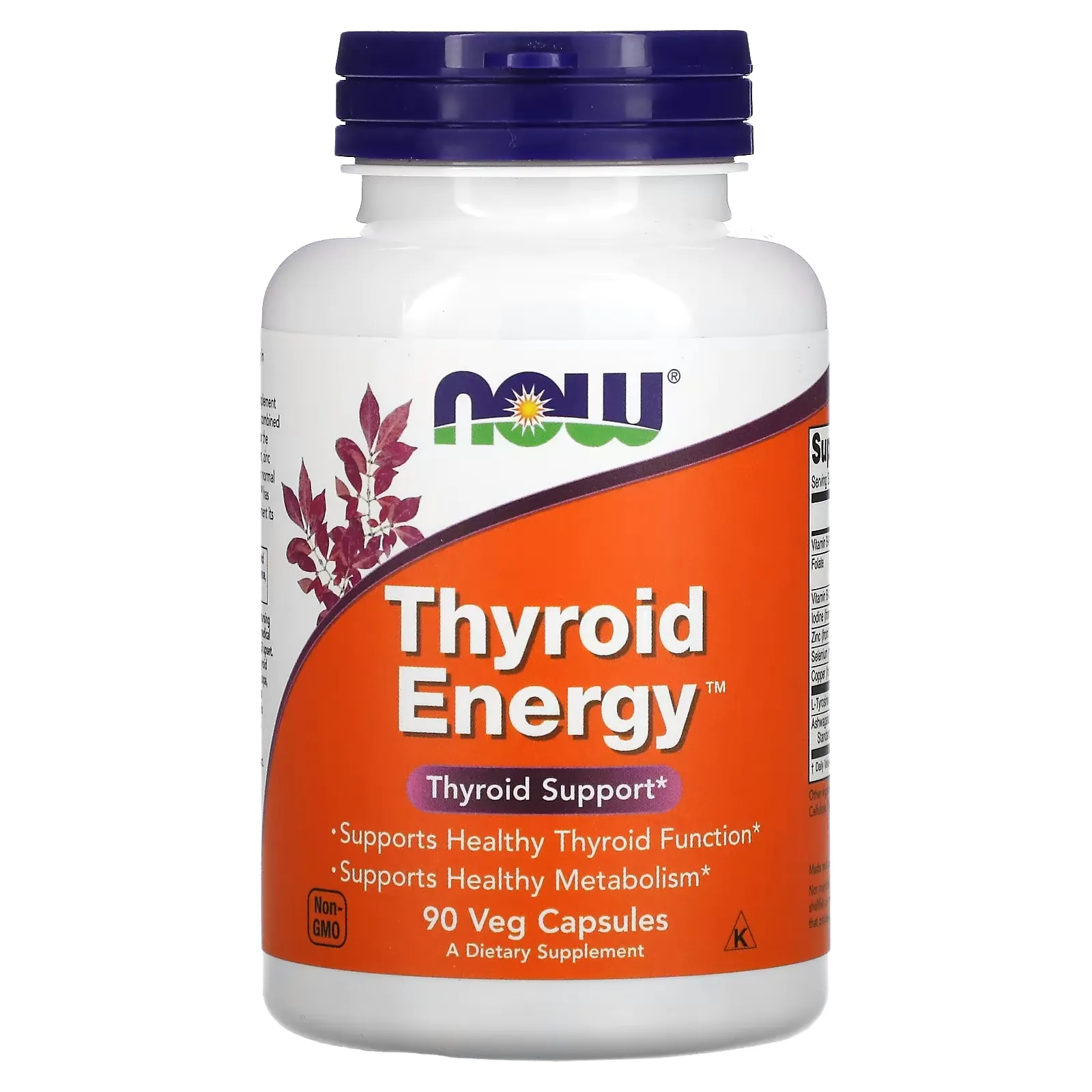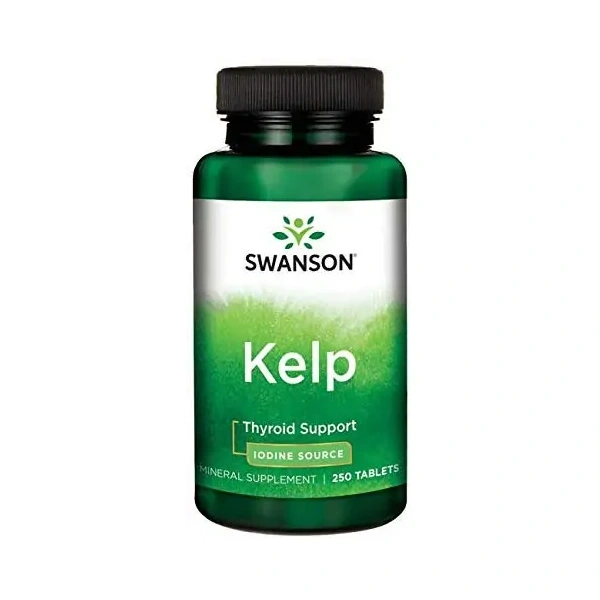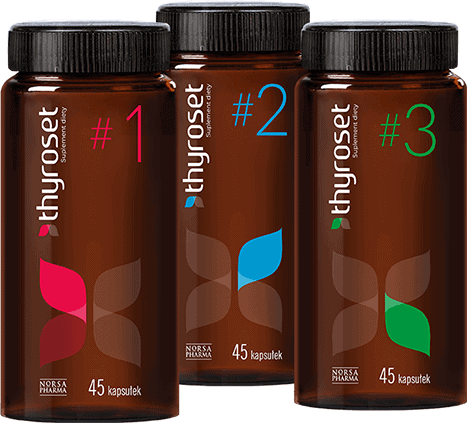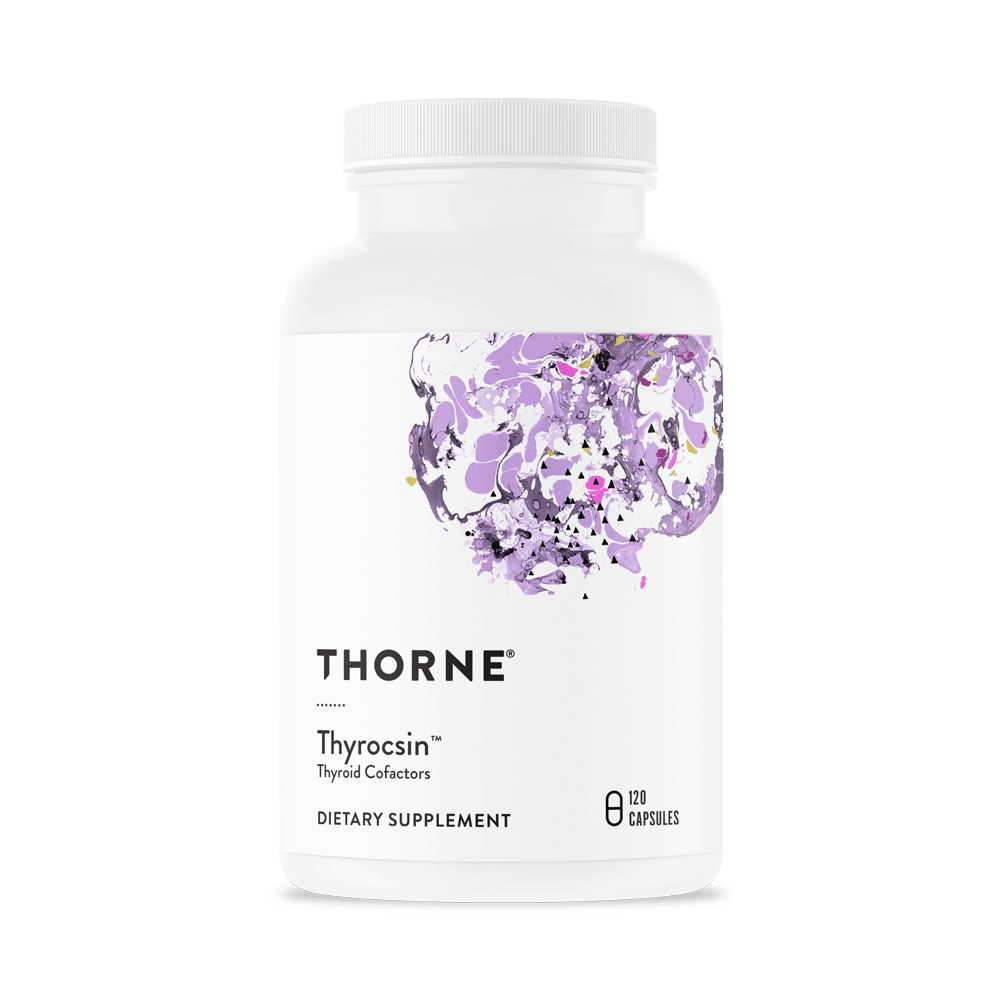.webp)
.webp)

Patryk Chodyniecki
Thyroid - by taking care of it, you take care of the whole body
Na te i inne pytania nie każdy jest w stanie odpowiedzieć. Rola tarczycy w organizmie człowieka jest jednak na tyle istotna, że wręcz obowiązkiem każdego powinno być posiadanie ogólnej wiedzy na temat tego narządu, aby być świadomym jego wpływu na człowieka oraz zagrożeń wynikających w przypadku jego zaniedbania. Jeżeli dopada Cię bezsenność, masz obniżony nastrój lub problemy żołądkowe – niewykluczone, że przyczyna leży w pracy tarczycy, a nie jedynie w kwestii niewłaściwej diety, stresowej pracy czy ciągłego zmęczenia.
- WHAT IS A THYROID? WHERE CAN WE FIND IT AND WHAT IS IT RESPONSIBLE FOR?
- WHAT IS A THYROID?
- THYROID FUNCTIONS IN THE BODY
- HYPOACTIVITY AND HYPERTHHYROID
- HASHIMOTO AND GRAVES-BASEDOVA
- DIAGNOSIS OF THYROID DISEASE
- HEALING DISEASES THYROID
- DIET FOR THYROID DISEASE
- FOR SUPPORT THYROID FUNCTIONING WE RECOMMEND
WHAT IS A THYROID? WHERE CAN WE FIND IT AND WHAT IS IT RESPONSIBLE FOR?
Not everyone can answer these and other questions. However, The role of the thyroid gland in the human body is so important that it should be the duty of everyone to have general knowledge about this organ, to be aware of its impact on the human body and the risks resulting from its neglect. If you suffer from insomnia, depressed mood or stomach problems – it is possible that the reason lies in the work of the thyroid gland, and not only in the matter of improper diet, stressful work or constant fatigue.
WHAT IS A THYROID?
The thyroid is an organ that resembles in the shape of a butterfly, located in the neck area and consisting of two lobes connected by an isthmus. The size (size) of the thyroid gland in the human body depends on factors such as sex, weight and predisposition to iodine supply. It is obvious that the thyroid gland grows with human growth, so in an adult human it can reach a mass of between 10 and 20 g.
THYROID FUNCTIONS IN THE BODY
To main the tasks of the organ include the production of thyroid hormones, i.e. thyroxine (T4) and triiodothyronine (T3), which together with the blood are transported throughout the body and affect many aspects related to the daily functioning of every human being, because the hormones produced they affect the entire body, from food to internal body temperature.
In the first place, it should be noted that these hormones are responsible for metabolism, in such a way that they increase the level of oxygen consumption, while producing heat.
In addition, they also take part in heart muscle contractions and diastolic tension, moreover, they activate the respiratory center as well as the digestive tract (including strongly boosting metabolism).
It should also not be forgotten that thyroid hormones affect the nervous system – muscular and endocrine system. Thyroid hormones also have a profoundinfluence on fetal development, passing through the placenta up to 12 weeks of fetal life, as it is their job to regulate fetal development, particularly the brain.
In addition, the thyroid gland also produces calcitonin, a hormone that affects the calcium economy – of the body.
Finally, it is worth emphasizing that thyroxine is produced only in the thyroid gland, while triiodothyronine is 20% produced in the thyroid gland, and the remaining 80% is produced in various tissues as a result of conversion by thyroxine deiodination.
HYPOACTIVITY AND HYPERTHHYROID
Undoubtedly, the source of all diseases of the thyroid gland is its condition and the related effect in the form of hyperthyroidism or hypothyroidism. Hypothyroidism is understood as a state of insufficient secretion of hormones or their deficiency, and hyperthyroidism is considered excess of hormones in the whole body. The source of hyperthyroidism are predominantly toxic nodules and thyroiditis. The most common symptoms of hyperthyroidism include: feeling hot, depressed mood, anxiety and nervousness, more sweating, weight loss, palpitations, vision problems and diarrhoea.
The mentioned inflammation of the thyroid gland can also be a source of hypothyroidism, but this is not the end of the catalog of causes, because it can also result from the lack of an adequate level of iodine, especially in young people, as well as genetically congenital disorders. The most common symptom of hypothyroidism is i.a. long-term feeling of cold, chronic fatigue or muscle pain, dry skin, hair loss, memory disorders, unintentional weight gain, mood swings, as well as difficulties in getting pregnant or constipation. It is worth noting that hypothyroidism is much more common than other thyroid-related diseases.
Hyperthyroidism and hypothyroidism are diagnosed on the basis of the overall clinical picture, as well as blood tests, including in particular those determining the concentration of appropriate hormones secreted by the thyroid gland triiodothyronine (FT3) and thyroxine (FT4) and pituitary thyroid stimulating hormone (TSH), produced by the anterior pituitary gland, whose function is to stimulate the thyroid gland to both produce T3 and T4 as well as secrete them. In the case of hypothyroidism, the level of TSH in the test results will exceed the norm, while in the case of hyperthyroidism, the amount of the hormone will decrease.
HASHIMOTO AND GRAVES-BASEDOVA
The most famous and most common diseases related to thyroid dysfunction include Hashimoto's disease and Graves' disease– Basedow, which are types of thyroiditis.
- Hashimoto's disease is considered an autoimmune disease associated with disorders of the immune system, consisting of in the fact that the body, instead of taking action to protect itself against infection, produces inflammation in its own tissues, i.e. it could be “attacking itself”. The key element of Hashimoto's disease is the long-term inflammation of the thyroid gland in the body, which in turn can lead to hypothyroidism. Importantly, in medicine it is assumed that Hashimoto's disease belongs to the group of asymptomatic diseases, i.e. those in which there are no clear symptoms of Hashimoto's disease. Any symptoms occurring during Hashimoto's disease are mainly the result of hypothyroidism, but they can also be caused by other autoimmune diseases or have a psychological background.
- Graves' disease in most cases leads to hyperthyroidism, much less often to hypothyroidism. Its characteristic element is its course, i.e. lack of continuity in the context of its severity, which means that the symptoms may sometimes intensify and sometimes weaken. The characteristic symptoms of Graves' disease are the occurrence of problems with the sense of sight, e.g. eye sensitivity, exophthalmos, and even poor vision. What's more, this disease can lead to increase in thyroid volume.
DIAGNOSIS OF THYROID DISEASE
For thyroid diseases, There are two diagnostic methods, i.e. hormonal and immunological. Hormonal diagnostics consists in the initial control of thyroid function TSH, and more precisely, in carrying out a screening test that allows you to determine the level of THS concentration in the serum. If the test result shows abnormalities, free thyroxine (FT4) levels are then assessed. Immunological diagnostics consists in the precise determination of the concentration of antithyroid antibodies and is obligatory in the case of suspicion of Hashimoto's disease or Graves' disease – Basedow.
The basic test for detecting thyroid disorders such as Hashimoto's disease or Graves' disease is ultrasonography, commonly known as ultrasound. Performing an ultrasound of the thyroid gland allows for the diagnosis of the existing ailment, which is confirmed by performing further tests, i.e. testing anti-thyroid antibodies in the blood serum, both in the case of Graves' disease and Hashimoto's disease. Graves' disease is characterized by TRAb antibodies, while Hashimoto's disease is characterized by aTPO antibodies.
In particularly justified cases, fine-needle aspiration biopsy can be used, which allows to determine whether the changes in the human body are benign or malignant, and radiological examination, i.e. X-ray, but only if necessary to visualize the pressure of the goiter on the esophagus, because a properly functioning thyroid will not be noticed during the X-ray examination.
HEALING DISEASES THYROID
Depending on the type of inflammation thyroid, i.e. whether we are dealing with hyperthyroidism or hypothyroidism, various types of treatment are envisaged. pharmacology.
The most common way is drugs from the group of thyrostatics, whose task is to inhibit the production of hormones, and blockers, whose aim is to reduce the effects of the disease. In the case of hyperthyroidism, it is sometimes necessary to remove thyroid tissue that shows any abnormalities, because it happens, for example, in the case of toxic nodules that pharmacological treatment can lead to serious complications. There are three ways to get rid of thyroid tissue, i.e. iodine treatment, ethanol injections, and surgery to remove the thyroid gland.
If a person develops hypothyroidism, constant treatment is considered necessary, consisting of taking thyroid hormones or iodine if the cause of hypothyroidism is its deficiency. One of the methods of treatment is the use of drugs containing triiodothyronine, the dose of which is determined after a detailed analysis of the results of the hormonal test, in which the determination of THS concentration is indicated as the best.
It should be emphasized that in addition to pharmacological methods of thyroid treatment, there are also natural ones. If the problem is iodine deficiency, the best solution would of course be its continuous supplementation. Apart from moving to the Baltic Sea, which is rich in iodine, or to other regions where iodine is present, we also have to introduce iodine to our daily diet. There is, among others in sea algae, in addition, it is also worth eating Brazil nuts, liver or seafood, because they are rich in selenium, which activates the secretion of thyroid hormones. Consuming minerals and vitamins such as zinc, calcium and vitamin D, and avoiding processed foods, sugar and saturated fat can also benefit you.
DIET FOR THYROID DISEASE
Hypothyroidism requires determination proper regulation of nutrition in particular when it comes to the regularity of meals, and also a necessary condition is to conduct daily activity in the form of walking, running, swimming or other activities that boost slowed down due to thyroid disease, metabolism. The diet should focus on baked or steamed meals, of course, enriched with the right amount of fresh fruit and vegetables. Alcohol consumption should also be limited, and recommends that caffeine should be avoided.
FOR SUPPORT THYROID FUNCTIONING WE RECOMMEND:
NOW FOODS Thyroid Energy - 90 vegetarian caps

Thyroid Energy is a complete dietary supplement to support a healthy thyroid. Now iodine and tyrosine, two integral components necessary for the synthesis of thyroid secretions, have been combined. The minerals selenium, zinc and copper have been added as cofactors needed for proper thyroid function. In addition, NOW Thyroid Energy contains Ayurvedic herbal extracts of Guggul (Commiphora mukul) and Ashwagandha (Withania somnifera) to replenish nutrients.
SWANSON Kelp (Healthy Thyroid) - 250 tablets

KELP is a sea vegetable rich in iodine, supports the proper functioning of the thyroid gland.
NORSA PHARMA Thyroset (Thyroid Support) 3 x 45 capsules

Thyroset supports the proper functioning of the thyroid gland and endocrine system. It was developed to supplement the basic deficiencies of vitamins and minerals in people requiring special attention to thyroid health (e.g. people with Hashimoto's disease and hypothyroidism). Remember that supplementation supports, but in itself is not the main therapeutic effect. In the case of deeper deficiencies, it may be necessary to supplement them additionally, determined on the basis of laboratory tests and medical consultation.
THORNE Thyrocsin™ (Support Healthy Thyroid Function) 120 Vegetarian Capsules

Thyrocsin thyroid cofactors increase of T4 hormones and support the peripheral conversion of T4 to T3. Thyroid hormones regulate the metabolism of proteins, fats and carbohydrates, thus affecting the production of energy by these macronutrients. A deficiency or excess of thyroid hormones can have far-reaching effects. For example, high cortisol levels can interfere with thyroid function, resulting in low thyroxine (T4) or poor conversion of T4 to its active form, triiodothyronine (T3). Each thyroid hormone performs many important functions in the body; for example, T4 supports cardiac output, heart rate, respiratory rate, and basal metabolic rate - a low basal metabolic rate can cause fatigue, chilliness, and trouble losing weight. Thyrocsin provides nutritional and botanical support for healthy thyroid function, T4 to T3 conversion, and normal cortisol levels. *This non-glandular thyroid support formula is only available from Thorne.
1. Clinical endocrinology, ed. A. Milewicz, ed. Medical Academy Silesian Piasts, Wrocław 2007
2. Basics of endocrinology, ed. T. Bednarczuk, ed. ITEM Publishing, Warsaw 2017
3. Anna Bojarska-Szmygin, Hyperthyroidism – selected diagnostic and therapeutic issues, Laboratory of Nuclear Medicine of the Provincial Specialist Hospital in Lublin, Borgis - Medycyna Rodzinna 2/1999, pp. 27-30/medical reading room; endocrinology.net
Rate the text

Patryk Chodyniecki

























